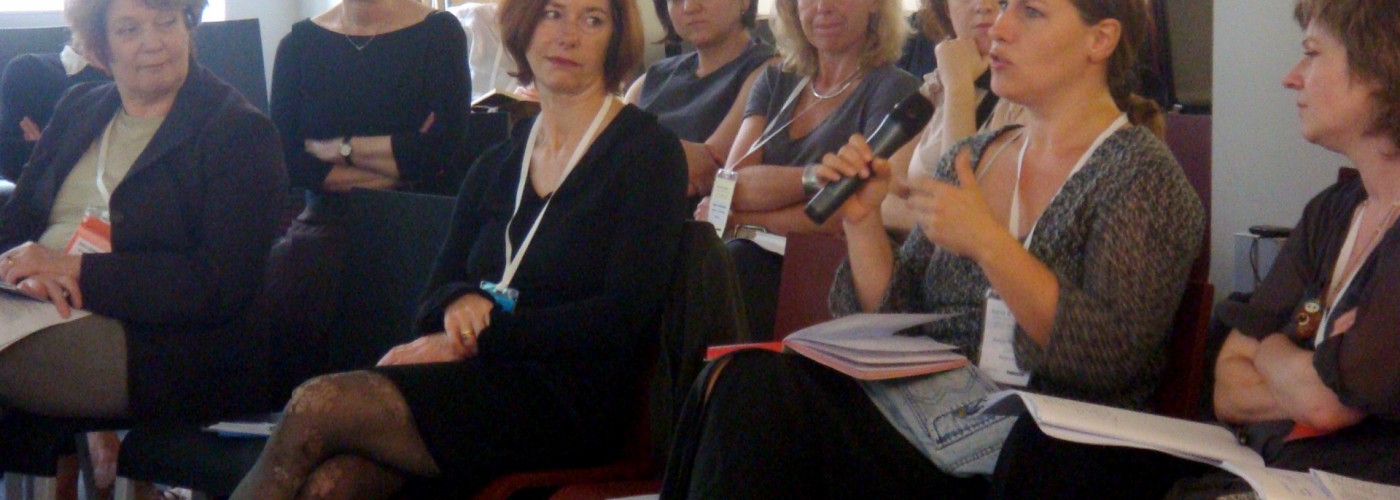Wednesday, May 28 2008
- Arrival
- (from 16:00) Kunstenfestivaldesarts performances
- post-performance drinks @ Kunstenfestivaldesarts centre (Beursschouwburg)
Thursday, May 29 2008
10:00 13:00 Introductory session
- Intro / welcome Mary Ann DeVlieg (IETM)
- Statement Kristien De Coster (Wim Vandekeybus / Ultima Vez)
- Introduction to the workshops Joris Janssens (VTi)
- Introduction themes Andreas Wiesand (ERICArts Institute - Europe)
- Open discussion moderated by Mary Ann DeVlieg and Ann Olaerts (VTi)
13:00 14:00 Lunch (buffet @ deBuren)
14:00 17:00 A plea for cross-collaboration between different ministries
Supporting international touring in the context of international cultural policy is a competence which is often divided among different ministries, departments (culture, foreign affairs, trade, etc.) and even government levels (national, regional, local). These ministries and government levels often have different goals and evaluation criteria. While these differences may lead to a polarized situation, a powerful international policy could just benefit from a more holistic approach and a good cross-collaboration between these different agendas. In Finland the Ministry of Education, the Ministry for Foreign Affairs, and the Ministry of Trade and Industry drew up a joint national programme for cultural export promotion. The objective was to facilitate, through cooperation, the emergence of cultural sectors into export sectors equal to other export sectors. According to the strategy, cultural exports will be developed in a broad manner covering both commercial and noncommercial exports, but especially by improving cultural entrepreneurship, clusters and networks, international marketing and promotion as well as existing structures promoting cultural exports. It is estimated that some 228 million Euros will be allocated to the implementation of the Cultural Exports Programme between 2007 and 2011. What has happened? What is the benefit for performing arts sector?
from 20:30 Performances @ Kunstenfestivaldesarts 08
Friday, May 30 2008
10:00 13:00 Top down vs. bottom up policies
Some countries develop an international cultural policy which is top-down and tightly directed, defining, for example, priority areas of collaboration and initiating their own projects. Other policies tend to use a more bottom-up approach, with funding projects initiated by actors in the field. What are the advantages and disadvantages of these angles? Can these two perspectives be complementary? In Britain, the British Council has traditionally had responsibility for artists, arts organisations and productions going OUT of the UK to foreign countries. Visiting Arts,
on the other hand, has been responsible for welcoming foreign artists and events into the UK. The Arts Councils of England, Northern Ireland, Scotland and Wales are
increasingly interested in internationalisation . Meanwhile, the UK s Department for Culture Media and Sport has taken on a role which is far more directive than during the years of the famous arms length principle . In such a complex landscape, from where does the influence for policy making come?
13:00 14:00 Lunch (buffet @ deBuren)
14:00 16:00 Towards a better use of data to shape policies
Some countries monitor the international touring of their companies by collecting data and handling these data statistically. But what kind of data and research would you need as a basis to monitor and develop policies for supporting international touring? How can this information, which is often gathered on a national level, be made comparable on an international level? The discussion starts with a presentation of a recent quantitative and qualitative analysis of the international position of dance and theatre from the Netherlands abroad and the factors that play a role in this.
16:00 17:30 closing session
18:00 closing meal @ Kunstenfestivaldesarts centre (Beursschouwburg Kafee)
from 20:00 Performances @ Kunstenfestivaldesarts 08 (optional)

